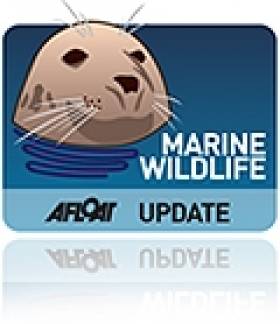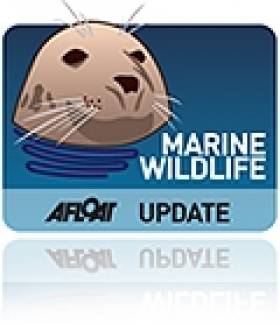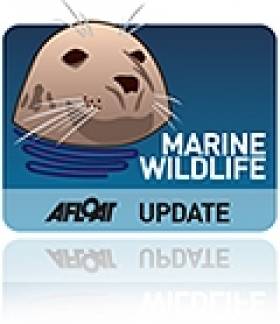Displaying items by tag: Strandings
Record Year for Whale and Dolphin Strandings
#MARINE WILDLIFE - The Irish Whale and Dolphin Group (IWDG) says 2011 was a record year for whale and dolphin strandings, according to The Irish Times.
IWDG co-ordinator Dr Simon Berrow confirmed a total of 160 strandings reported by year's end.
"This is by far the highest total for the number of stranding records and the third highest total for sighting records since the IWDG recording schemes were established in 1991," he said.
The 2011 record compares to a figure of 92 stranded cetaceans in 2010 - a number much lower than previous years.
Dr Berrow explained to BBC News: "The figures for 2010 were very low, and, we think, this was due to the easterly winds that year. But now we are back up to the kind of level we expect."
Stranding records in 2011 were characterised by a very high peak of common dolphin strandings during February and a high number of porpoise strandings during the winter.
Meanwhile, Dr Berrow considered the latest sightings record "very impressive" given the exceptionally poor sea conditions during autumn and winter.
More than 1,500 whale and dolphin sightings were made in 2011 around the entire coastline of Ireland despite the bad weather.
Whales, Dolphin Found Beached on West Coast
#MARINE WILDLIFE - Three whales and a dolphin were found beached over the past few days along Ireland's west coast, according to the Belfast Telegraph.
Dr Simon Berrow of the Irish Whale and Dolphin Group confirmed that reports had been received of a bottlenose whale on White Strand in Co Clare, a pilot whale on Fintra Beach in Co Donegal and a dolphin in Silverstrand, Co Galway - all found dead.
The latest find was a male sperm whale stranded on Omey Island in Co Galway, shed of its skin and with a broken lower jaw.
"Chances are it died offshore and got washed in with the wind," said Berrow.
The IWDG said such strandings were relatively common, although as reported on Afloat.ie earlier this year there has been growing concern over the rising number of dolphin deaths along the south coast in particular.
Record Dolphin Strandings 'Inexplicable'
There is growing concern over the rising number of dolphin deaths along Ireland's south coast, the Irish Examiner reports.
The Irish Whale and Dolphin Group (IWDG) announced that a record 19 common dolphins washed up dead in Cork, Waterford and Wexford in January and February of this year alone - 17 more than in the same two months of last year.
Padraig Whooley of the IWDG said the deaths were "inexplicable", noting that there were no obvious signs of injury.
He added that the IWDG did not have the resources or funding to carry out the necessary post-mortems to determine the cause of death, which could be viral in nature.
The Irish Examiner has more on the story HERE.
Removal of Whales to Cost Council €10,000
The pod, which had been observed in waters between Arranmore Island and Burtonport during the week before they stranded themselves on a beach on Rutland, were also believed to be the same pod monitored off the South Uist, off the Hebrides. Shortly before that it was feared that the whales may have also attempted to beach themselves.
Dr Simon Berrow of the Irish Whale and Dolphin Group (IWDG) said he could not rule out sonar interference for confusing the whales and leading to their beach deaths. For information on the IWDG logon to www.iwdg.ie


























































